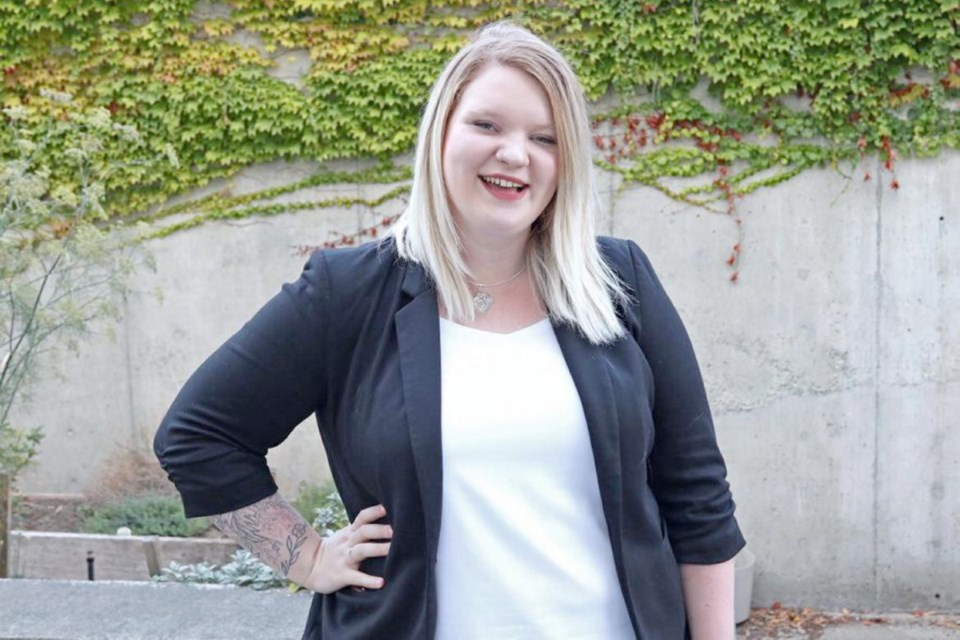For Ruby Barclay, transitioning from a life in the foster-care system to her new life as a university student was lonely and confusing. Barclay was able to attend Nanaimo’s Vancouver Island University because it was the first school in B.C. to waive tuition for former youth in care in 2013.
But she had no parents to call for cooking advice, no place to go for the Thanksgiving holiday.
Barclay didn’t want other former youth in care to experience the same sense of isolation in university, so she helped create a paid position at VIU that gives peer-to-peer support for students who have aged out of care.
When she held the position last year, during the final year of her program, Barclay helped a student living in a tent get funding for housing, she hosted a “friendsgiving” dinner so no one had to spend the holiday alone and delivered care packages at Christmas to students who said it was the only gift they had received.
“They needed a support network of people who understood that they came from something hard, but they got here anyway,” said the 23-year-old. “We need to make sure these students are being included in our communities because they don’t come with communities already.”
She said that wrap-around support is needed now more than ever, in light of the B.C. government’s announcement on Tuesday that 806 former youth in care have received free tuition since the provincial tuition waiver program was launched in 2017. That’s more than four times the 189 students who received free tuition at 11 colleges and universities before the government expanded the program to 25 public post-secondary institutions and the Native Education College.
Last year, the program was expanded to foundation and apprenticeship training programs at 10 union-based training colleges.
VIU has 93 students benefiting from the tuition-waiver program, the highest in the province, followed by 90 students at Camosun College.
On Tuesday, Premier John Horgan, Minister of Advanced Education Melanie Mark and Minister of Children and Family Development Katrine Conroy were at Douglas College’s Coquitlam campus to celebrate the success of the program and encourage more youth to take advantage of it.
“With the tuition waiver program, and improved supports for children aging out of care, we hoped that youth in care would get the message that we believe in them and want to see them succeed,” Horgan said in a statement. “The results have been inspiring. These young people were ready for opportunity, they just needed a path to a better future.”
The chance at a university career can help break the cycle of poverty and homelessness facing former children in care, said Barclay.
Less than 50 per cent of children in foster care in B.C. graduate from high school and fewer than 25 per cent go on to post secondary education, according to figures from the Office of the Representative for Children and Youth.
“I can only imagine the complexity and added layer of being someone who aged out of foster care and was racially stigmatized or someone with FAS [fetal alcohol syndrome],” said Barclay, who graduated last year and is now working at the Nanaimo Aboriginal Centre as a youth advisory council co-ordinator.
The peer support navigator position was the first of its kind in Canada and other B.C. universities have since created similar positions.
Barclay wants to see such positions increased at universities with high ratios of former youth in care. For example, one peer support worker for 93 students at VIU is not enough, she said.
To be eligible for the tuition waiver program, students must be between the ages of 19 and 26 and must have been in care in B.C. for a minimum of 24 months. Barclay wants to see the age cap lifted, to acknowledge that some students aren’t ready for university until several years after they age out of care.
As she looks to continuing her education with a graduate degree, she said the chance to complete her bachelor’s degree without drowning in debt “makes me hopeful for all the other young people who have the opportunity to access education.”



